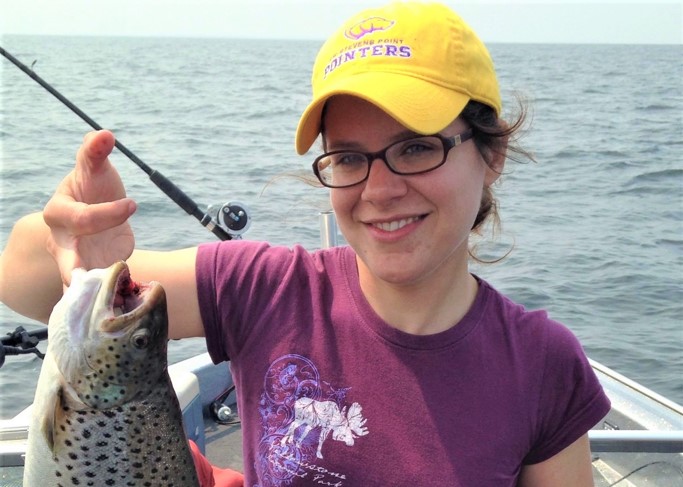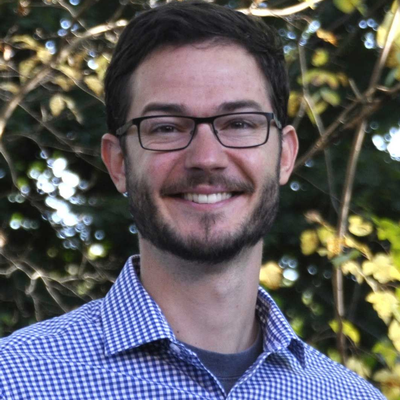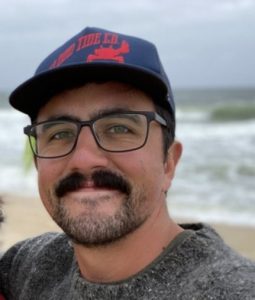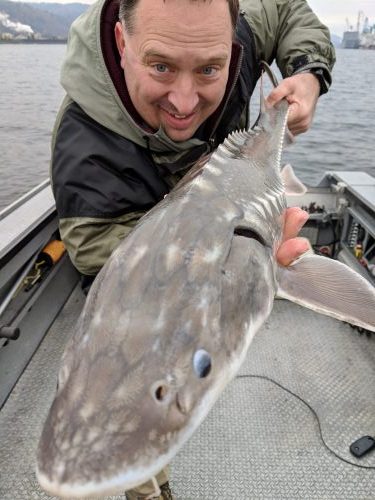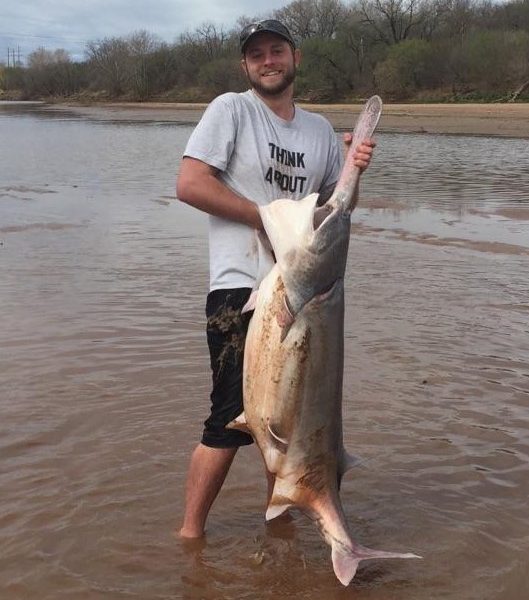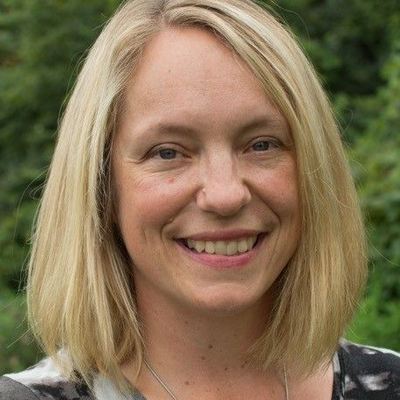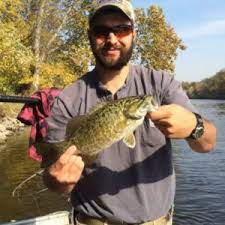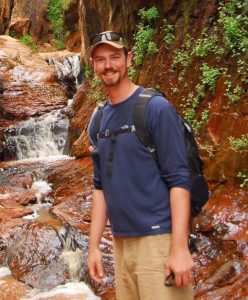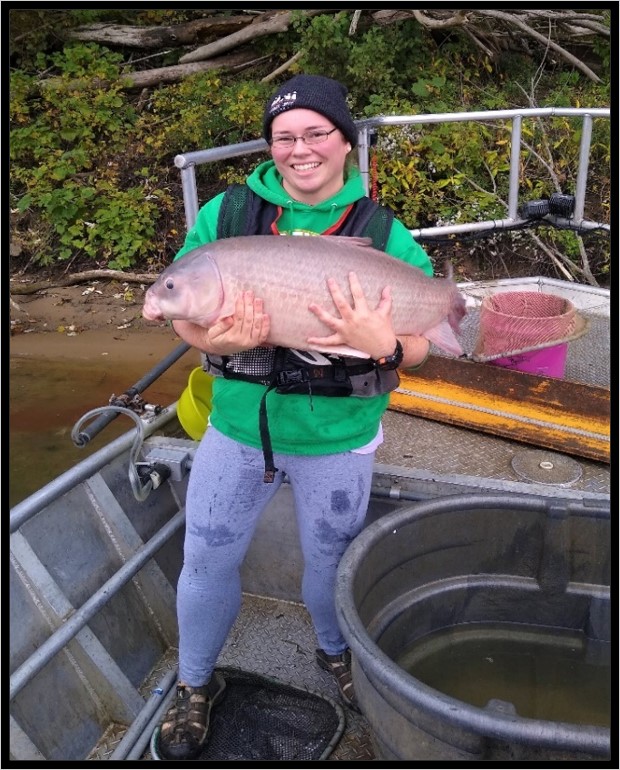Saturday, August 19
8:00 am – 5:00 pm (Full Day)
Introductory GIS for Fisheries Biologists
Participants will be introduced to using spatial data in a GIS platform and gain hands-on experience applying concepts during exercises that accomplish real-world tasks such as map-making and data manipulation that might be conducted by a fisheries biologist.
Instructors:
Hadley Boehm
University of Missouri
Clint Morgeson
Virginia Department of Wildlife Resources
Bayesian I: Introductory Bayesian Inference with JAGS for Fish Biologists
Interest in applying Bayesian inference to fisheries analyses has grown over the last several decades, however, computational implementation remains a barrier for many practitioners given these methods are generally not part of traditional university curricula. This workshop is intended for fisheries professionals with an interest in learning about Bayesian methods and how to use JAGS to implement them on their own data sets. JAGS is a widely used and free program that allows specification of conditional probability models and interfaces cleanly with the R programming environment (basic R experience recommended). Foundational topics on Bayesian implementation will include distinctions and advantages/disadvantages of Bayesian versus classical inference, Bayes’ Theorem, prior/posterior distributions and their roles, basics of MCMC methods, and the diagnosis of MCMC convergence issues. These topics will be covered via lecture material throughout much of the morning and explored in the afternoon with some limited JAGS examples including simple mean/variance estimation, comparison of posteriors, linear, and (time-allowing) non-linear regression.
Instructors:
Henry Hershey
Auburn University
Benjamin Staton
Columbia River Inter-Tribal Fish Commission
Sunday, August 20
8:00 am – 5:00 pm (Full Day)
Advanced GIS for Fisheries Biologists
This course will introduce participants to advanced concepts and tools for manipulating and summarizing spatial datasets using the ArcGIS Pro and open source QGIS platforms.
Topics covered include: geoprocessing, interpolation, simple geostatistics, building spatial networks, and conducting aerial image classifications. The course will be a combination of lectures and hands-on exercises using examples that might be encountered by a fisheries biologist.
Instructors:
Hadley Boehm
University of Missouri
Clint Morgeson
Virginia Department of Wildlife Resources
Bayesian II: Intermediate Bayesian Inference with JAGS for Fish Biologists
Bayesian II is a continuation of topics covered in Bayesian I to cover more advanced topics in JAGS modeling. Although it is possible to register for only Bayesian II, it is recommended that participants have some previous experience with Bayesian inference and JAGS should they choose this route. Analyses will include assorted GLMs (logistic, Poisson, negative binomial, and zero-inflated Poisson regression), goodness-of-fit checks, Cormack-Jolly-Seber models, and (time allowing) state-space population dynamics models (e.g., spawner-recruit analysis). Each model and example data set will be covered via lecture material prior to coding the model in JAGS to ensure all participants are familiar with each new model and topic.
Instructors:
Henry Hershey
Auburn University
Benjamin Staton
Columbia River Inter-Tribal Fish Commission
CANCELED, as of 8/17:
Data Wrangling using the Tidyverse in R
This workshop is an introduction to the fundamentals of tidying and wrangling data using R. We will focus on the process of data wrangling beginning with raw data to clean, organize, and summarize the data to answer specific questions. We will use the Tidyverse packages to perform these steps because Tidyverse packages are more intuitive than BaseR functions and can be integrated into visualization packages like ggplot2. We will use fisheries datasets in walkthrough style lectures and examples as well as in independent exercises. The format is meant to introduce participants to different functions and then reinforce knowledge through iterative examples. The workshop uses RMarkdown format which can be used to create reports, but experience with RMarkdown is not required. Experience with R would be beneficial, but extensive experience is not required.
Instructors:
Garrett Johnson
US Fish & Wildlife Service
Shaley Valentine
University of Southern Illinois-Carbondale
Database Concepts, Design, and Application in Wildlife and Fisheries Science
This full day course is applicable to anyone who collects and works with data. The focus will be fish and wildlife examples, but folks from any field or discipline are welcome. Some of the topics that will be covered include: data management life cycle, data management planning, data security and sharing, data validation and verification, quality assurance and quality control, types of data tools, choosing the right tool for the job, and basic relational database structure and design. Instruction will include lectures and demonstrations. The last two topics will give students the opportunity to walk through construction of their own database using a fisheries example. Computers will not be provided, but participants are welcome to bring their own laptop and dataset.
AFS thanks the Fisheries Information & Technology Section for organizing this course!
Instructor:
Keith Hurley
Nebraska Game and Parks Commission
Sunday, August 20
8:00 am – 12:00 pm (Half Day)
How To Run Citizen Science Projects with Anglers
In this workshop, participants will learn how to run a wide range of citizen science programs that can address specific research and/or management objectives. The tool used in this workshop is the citizen science app, MyCatch, which has been used by several state and federal agencies to address specific fisheries research and management challenges. The workshop will demonstrate how fisheries professionals can rapidly set up and launch citizen science projects, recruit anglers, manage the data collection and quality assurance programs, and generate results in near real time with digital dashboards. Examples of past citizen science projects will be reviewed, specifically showing how it can support creel surveys, tagging surveys, population estimates, tracking invasive species and conducting primary research. The group will work through a demonstration of the technology, using tools in real time during the workshop.
Scientific Writing Workshop
Registration is limited to the first 30 individuals, with overflow being placed on a waitlist.
Instructor:
Steve Midway
Sunday, August 20
1:00 pm – 5:00 pm (Half Day)
Aquatic Plant Identification
Aquatic plants are critical to the life histories of many freshwater fishes and are a fascinating and diverse group to study! Fisheries professionals are increasingly recognizing their habitat value and the negative impacts that invasive plants and vegetation management activities can have on fish communities. As such, it is valuable for fisheries professionals to understand the ecological roles and distribution of aquatic plants in lakes and streams and to be comfortable identifying native and invasive aquatic plants in their region. In this workshop, you’ll learn about aquatic plant ecology, become familiar with their taxonomy and anatomy, and enhance your skills in identifying aquatic plants. You’ll receive instructional handouts and have plenty of time to practice and quiz yourself on aquatic plant identification using fresh and preserved specimens. Given our location in Grand Rapids, Michigan, the focus will be on aquatic plants of the Upper Midwestern US.
Instructors:
Erick Elgin
Michigan State University
Jo Latimore
Michigan State University
SOLD OUT - Informing Fisheries Management with Individual-Based Models in R: Design, Implementation, and Analysis
Individual based models in fisheries management have the power and potential to (1) complement and bolster conclusions from empirical studies, (2) make sense of noisy fisheries and ecological data, (3) explore intractable questions (e.g., examine responses over evolutionary time), (4) and generate novel hypotheses and predictions. In this workshop, we will provide a brief overview on the utility (and shortcomings) of IBMs for fisheries research. We will provide a general overview of how to design and implement a simple IBM in the R statistical software environment and we will provide hands on experience for participants to develop novel or tweak existing IBMs to answer new questions in fisheries research.
Instructors:
Mark Christie
Purdue University
Catherine Searle
Purdue University
Course Pricing
Member Type | Full Day | Half Day |
|---|---|---|
Student Member | $125 | $65 |
Student Non-member | $150 | $75 |
Early Career Professional Member | $150 | $75 |
Regular Member | $175 | $90 |
Non-member | $250 | $150 |

